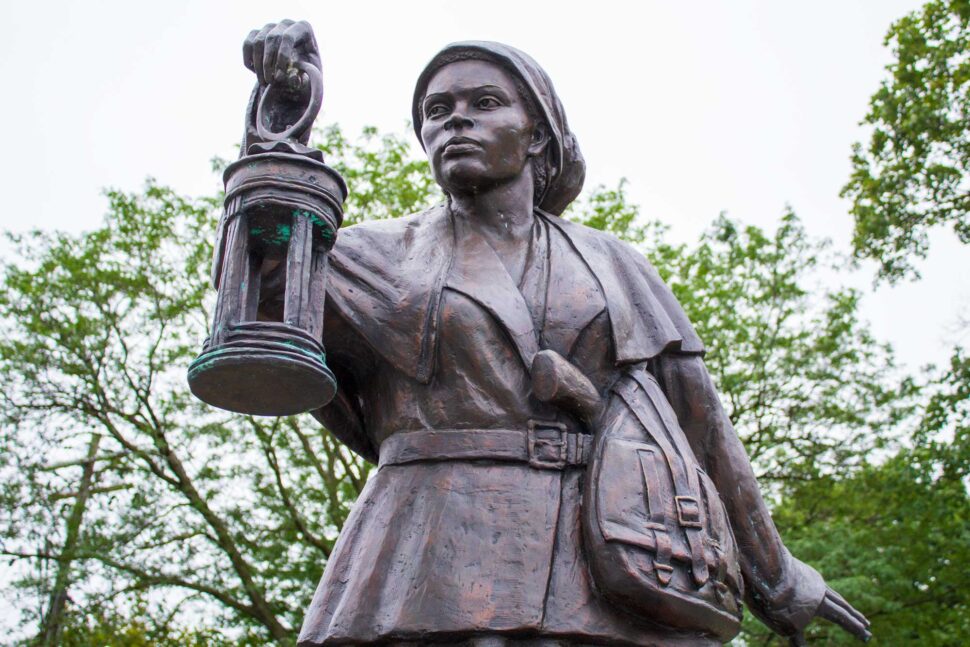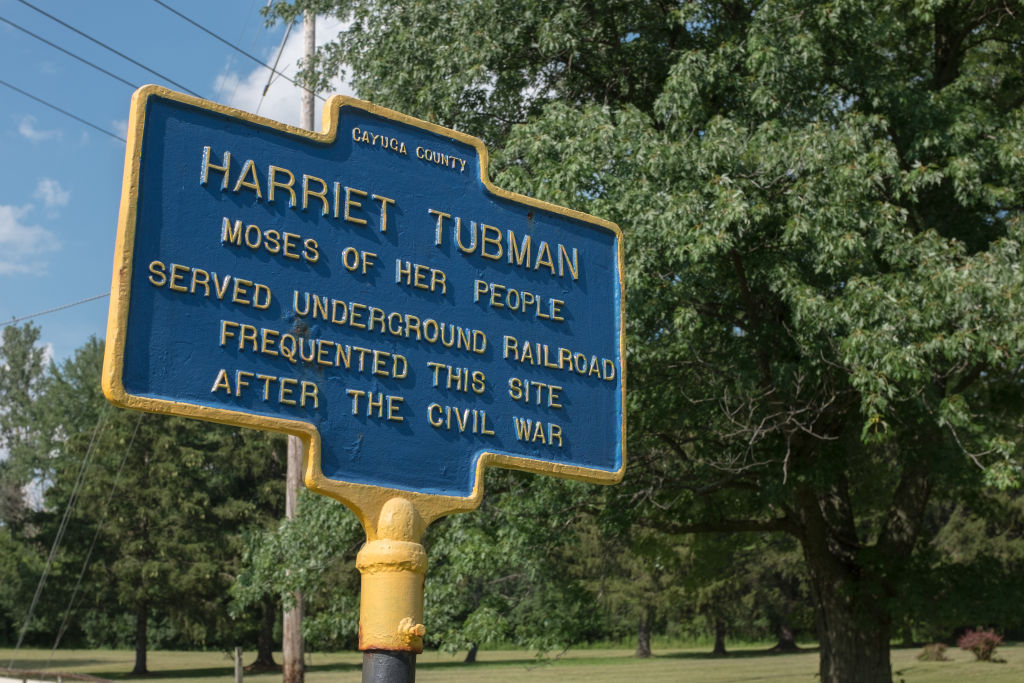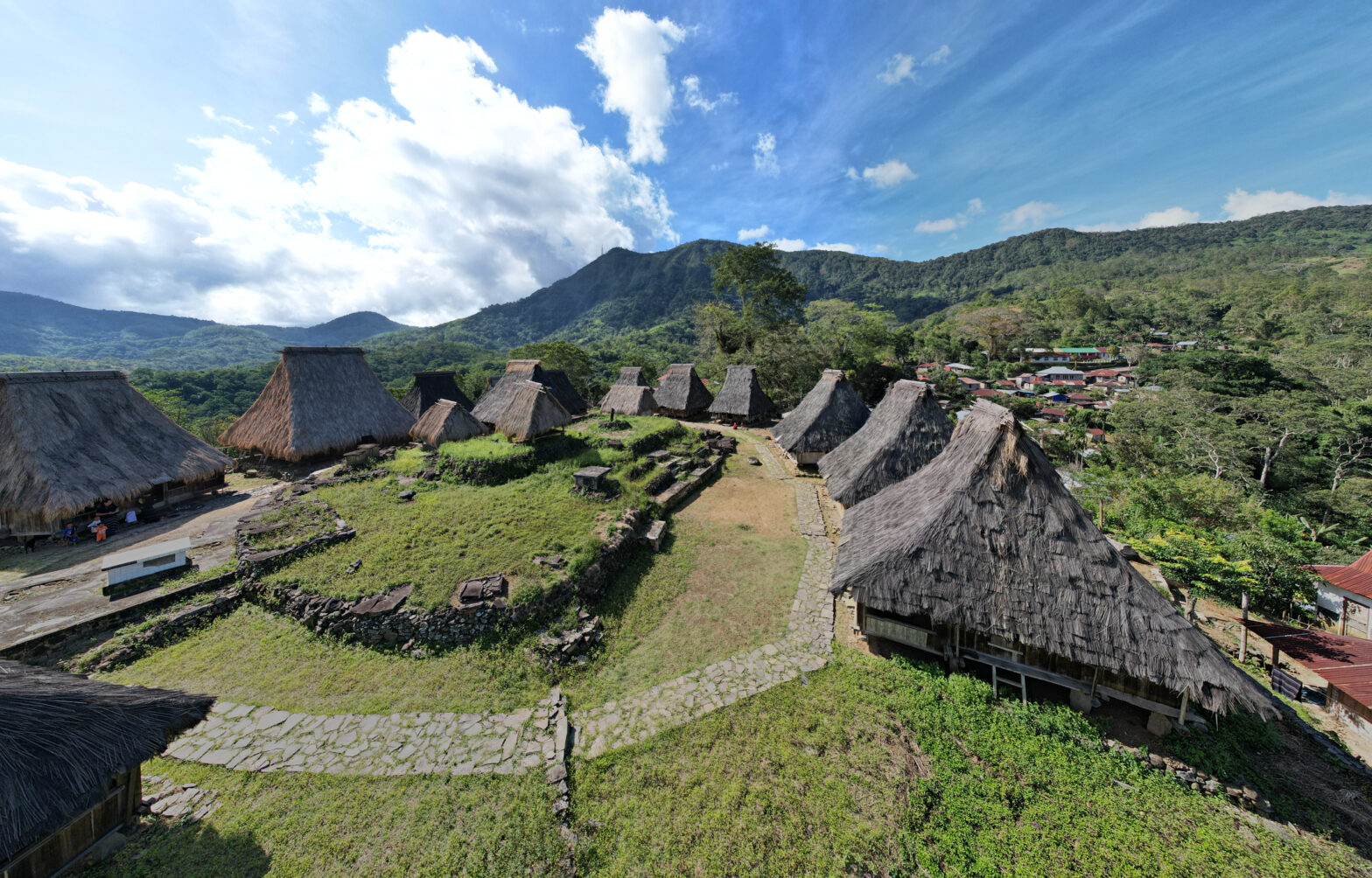Many remember Harriet Tubman’s story for her efforts in the Underground Railroad. She was also a humanitarian, fought for women’s rights, and was an armed scout and spy for the United States Army during the American Civil War. Tubman was born into slavery in Maryland but escaped to freedom in the North in 1849.
Over the next decade, she would make numerous trips back to the South as a “conductor” on the Underground Railroad, a network of secret routes and safe houses used by enslaved people to escape to freedom. However, her story didn’t end there.
A lesser-known fact about Tubman is that she eventually settled in upstate New York. Near the Finger Lakes, in the small town of Auburn. Tubman would call Cayuga County home and find community during the 50 years of life she spent in freedom.
Harriet Tubman’s Home – Auburn, New York
Auburn, New York was a small town located in central New York State when Harriet Tubman settled there in the mid-1850s. At the time, Auburn was a center for manufacturing and transportation, with a population of around 9,000 people. Tubman settled in Auburn with her family and established herself as an active community member.
She worked tirelessly to support the abolitionist cause, speaking at public events and participating in the Underground Railroad. After the Civil War, Tubman used her savings to purchase a 25-acre farm outside of Auburn that she called “The Home.” She farmed the land herself and also used it as a refuge for her family and others in need.
Tubman was passionate about agriculture and believed owning and working the land was an important part of African American economic independence. She worked hard on her farm, raising vegetables, fruits, and livestock, and was known for her skill as a farmer.
In addition to her abolitionist work, Tubman also established a home for elderly and sick African Americans in the early 1900s. This home is now recognized and preserved as the Harriet Tubman National Historical Park. Her home, the centerpiece of the park, is the brick residence where she resided with her family for years.
Today, Auburn continues to honor Tubman’s legacy with several landmarks and institutions that commemorate her life and work.
RELATED: This Black Woman Recreated 695-Mile Journey Of Harriet Tubman On Foot
Tubman’s Statue & Grave

There’s also a bronze statue of Harriet Tubman that sits in front of the Cayuga County Courthouse in downtown Auburn. Unveiled in 2008, the statue depicts Tubman in the act of leading enslaved people to freedom on the Underground Railroad.
You can also visit the grave of Harriet Tubman. Tubman lies in rest in Auburn’s Fort Hill Cemetery, attracting visitors from around the world.
The grave is marked by a simple headstone inscribed with Tubman’s name and the words “Servant of God, Well Done.”
Getting To Cayuga County
The closest major airport to Auburn is Syracuse Hancock International Airport, approximately 30 miles away from Auburn. If you are flying to Syracuse, you can rent a car at the airport and drive to Auburn.
Alternatively, you can take a taxi, shuttle service, or public transportation to Auburn. The Centro bus system operates several routes between Syracuse and Auburn, with stops at the airport and other locations.
If a flight to Syracuse is hard to find, Rochester International Airport is an alternative arrival destination 85 miles west of Auburn. From there, you can rent a car to make the drive to Auburn, take a shuttle service, or navigate public transportation.
RELATED: Home of Harriet Tubman’s Father Found By Maryland Archaeologists





